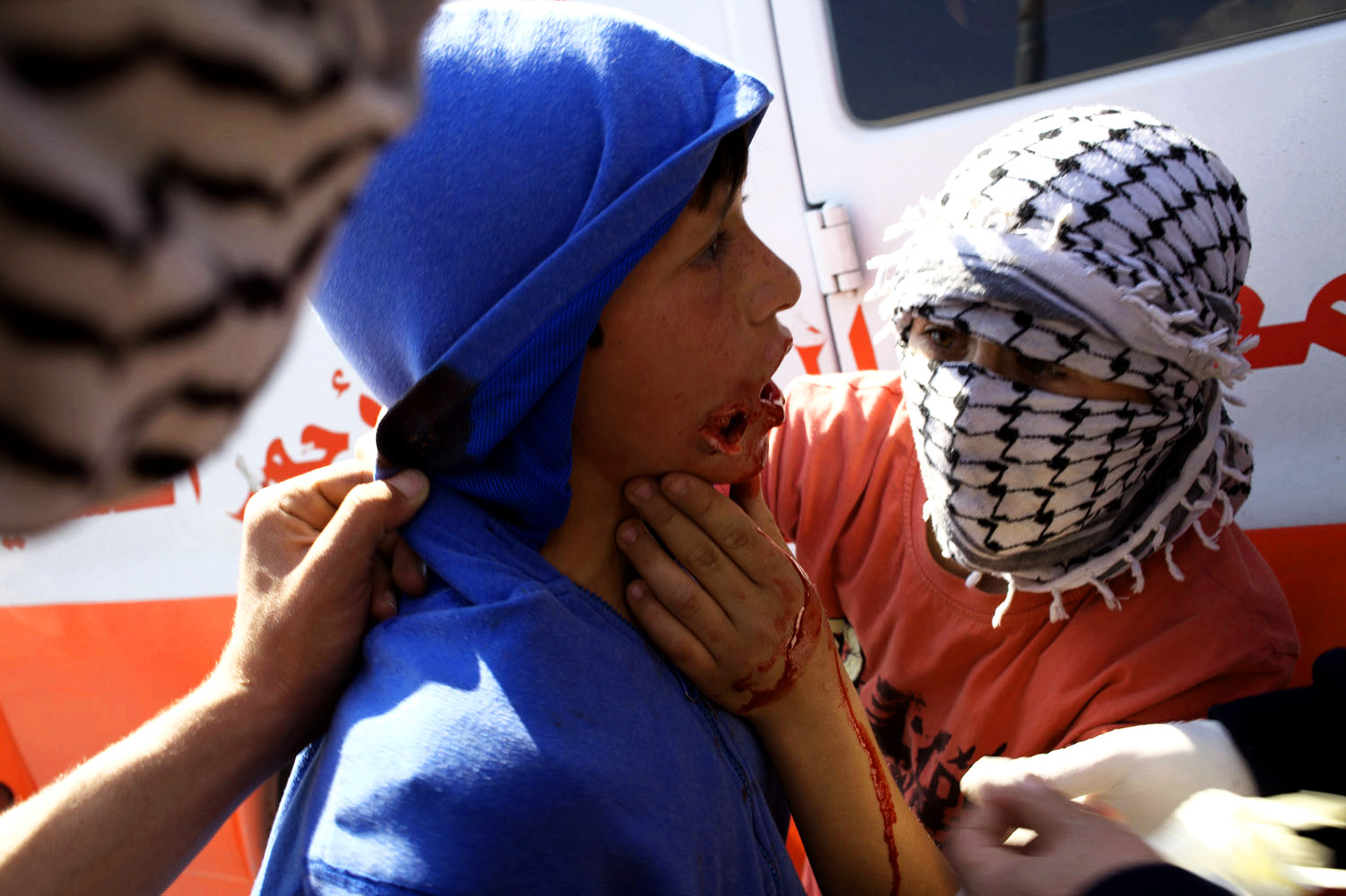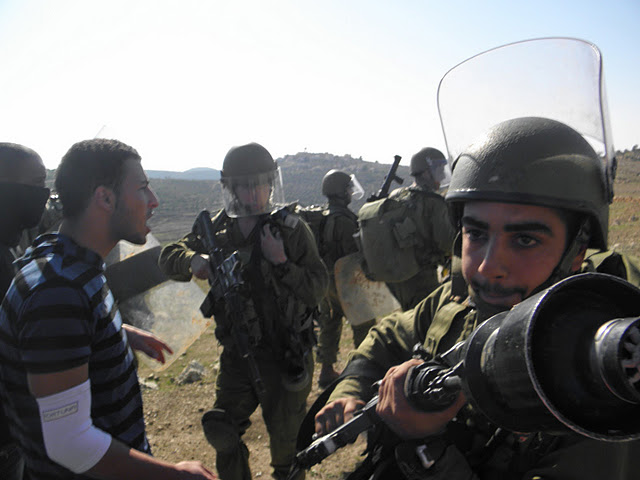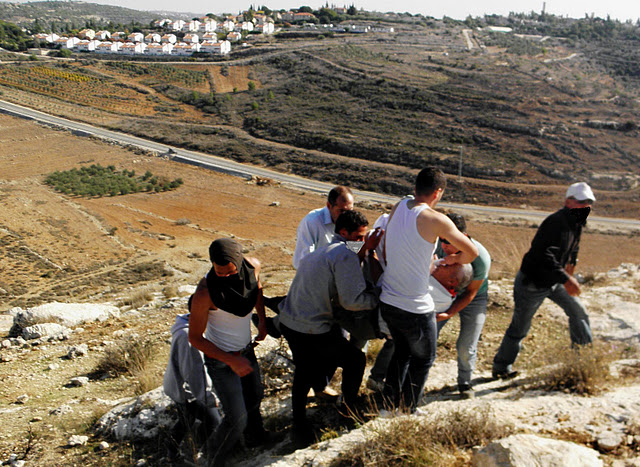Tag: Hallamish Settlement
-
Nabi Saleh: Israeli Soldiers Shoot 15 year old in the face with rubber coated steel bullet
by Jonathan Pollack 23 March 2012 | Popular Struggle Coordination Committee The bullet shot from a short distance hit the boy in the face penetrating his right cheek and piercing it. Israeli Border Police officers shot a rubber-coated bullet at 15 year-old Ezz Tamimi’s face from a distance of about 20 meters, during the weekly…
-
Associated Press journalist arrested in Nabi Saleh
by Aida Gerard 2 December 2011 | International Solidarity Movement, West Bank One Palestinian journalist from the Associated Press was arrested while the Occupation Forces invaded the village of An Nabi Saleh. Before the beginning of Friday’s traditional protest in An Nabi Saleh, the Occupation Forces placed soldiers at the entrance gate to the village…
-
As B’TSelem documents shooting of man, employee is arrested
by Aida Gerard 11 November 2011 | International Solidarity Movement, West Bank A 55 year old Palestinian man was taken to hospital from Nabi Saleh due to an injury from a rubber coated steel bullet. After two hours of demonstrating the Israeli Occupation Forces invaded Nabi Saleh and arrested one Palestinian, 36 year old Bilal Tamimi,…



